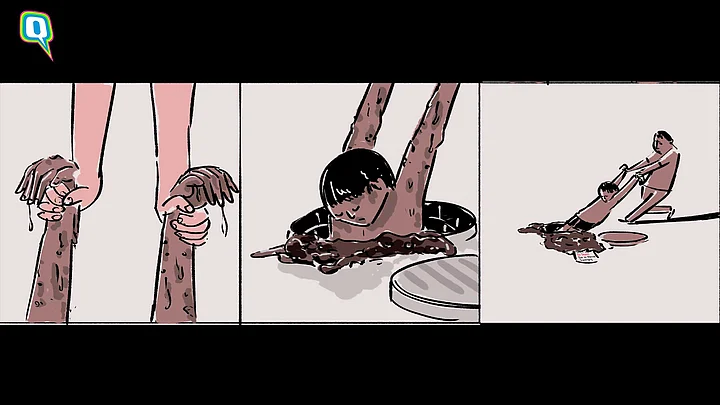No deaths have been reported in India due to manual scavenging in the last five years, Minister of State for Social Justice and Empowerment Ramdas Athawale stated on 28 July.
Dignity in death seems like an aloof concept in today’s India. On technicalities, through loopholes, or through the lack of data, the Bharatiya Janata Party-led government has time and again unburdened itself of accountability and failed to show compassion. The latest statement on deaths of manual scavengers shows just that.
According to the data presented by the central government in the Lok Sabha in February this year, 340 people had lost their lives while cleaning sewers and septic tanks across the country during the last five years, up to 31 December 2020.
But since the government does not recognise people who regularly enter septic tanks and sewers for cleaning or maintenance as manual scavengers, their deaths are not taken into account.
When asked whether more than 90 percent of the employees in the sanitation and cleaning sectors were Dalits, Athawale told the Lok Sabha on 27 July, "no such data is maintained by this department."
'Inhumane' Statement: Safai Karmachari Andolan
As per a research paper published in Economic & Political Weekly (EPW) in 2020, of the 1.2 million manual scavengers in India, 95-98 percent are women who belong to the following castes: Valmikis, Haila and Halalkhor, and Mister and Dome castes.
"They are untouchables among untouchables, and are located at the lowest rung of the social order, and are ostracised by Dalits themselves," the paper titled 'Manual Scavenging: Women Face Double Discrimination as Caste and Gender Inequalities Converge' added.
Speaking to The Quint, Bezwada Wilson, national convener of the Safai Karmachari Andolan (SKA) termed Athawale's statement "inhumane”.
